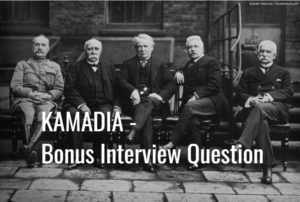By Art Markman, Professor of Psychology and Marketing at the University of Texas at Austin
Like many people, I often have music in the background when I exercise. I have been doing classes on a Peloton during the pandemic, and they all have a soundtrack. Over the winter, I ran a couple of half marathons, and in each race, I felt like key songs came on at important parts of the course that helped me continue at a race pace.
One of the reasons why so many people listen to music during exercise is that it has a number of benefits. The research around the positive influences of music during exercise was reviewed in a paper by Peter Terry, Costas Karageorghis, Michelle Curran, Olwenn Martin, and Renee Parsons-Smith in the February 2020 issue of Psychological Bulletin.
These researchers did a meta-analysis of studies of music during exercise and sport performance. A meta-analysis looks across many different studies to look for consistency in results.
Probably the biggest influence of music on exercise, based on these findings, is that listening to music during exercise can make you feel better about what you have done. Experiments that manipulate whether people are listening to music while exercising find that people feel more positively about the exercise when they have listened to music than when they have not. The impact of music didn’t depend on the intensity of the exercise, and the effect appeared for both trained and untrained athletes.
Music also seems to reduce people’s feeling of how much they are exerting themselves. That is, at the same level of intensity of activity, listening to music can make you feel like you are exerting less effort than you would feel without music. Some studies have also shown that when athletes are free to set their own exertion level, they are willing to exercise more intensely with music than without.
There are a couple of potential reasons for this. For some people (particularly when they are early in their training), music helps them to focus their attention on the music rather than on pain or other symptoms of effort. For other people (particularly for trained athletes), the content of the music helped. These “associators” would either synchronize their effort to the music or would draw inspiration from the song itself through its lyrics or other associations between the song and athletic performance (think “Eye of the Tiger” or the theme from Chariots of Fire).
Music also appears to have a small effect on performance overall. Athletes perform better both during exercise and while engaging in their sport when there is music, though the effects are stronger for exercise than for the sport itself. (The researchers also note that because of the possibility of “publication bias“—the non-publication of studies that do not find effects—”the summary effect size for performance may be slightly inflated.”) In the studies analyzed, fast music, with a tempo greater than 120 beats-per-minute, was more effective than slow music. Interestingly, it doesn’t seem to matter whether the athlete chooses the music or whether it is chosen by someone else (like the experimenter). So, the playlists selected by the teachers of an exercise class you’re taking may work even if you don’t love all of the songs.
The one place where music doesn’t seem to have much of an impact is on physiological functioning. The heart rate of an athlete is not consistently affected by music. There is some evidence that music may benefit the body’s oxygen usage, but these effects are small at best.
All of which is to say that music is a performance-enhancer that doesn’t appear to have any negative consequences. If music makes you feel better about exercise, you’re more likely to continue your exercise program (which benefits health and performance in the future). Music could also help you to maximize your athletic potential. Even if you don’t like to compete against other people, it is natural to look for improvements in yourself over time. Music can help you to enhance that sense that you’re getting better with practice.
Art Markman is Annabel Irion Worsham Centennial Professor of Psychology and Marketing at the University of Texas at Austin
Note: The views expressed in this article are the author’s, and not the position of Intellectual Dose, or iDose (its online publication). This article is republished with permission.



